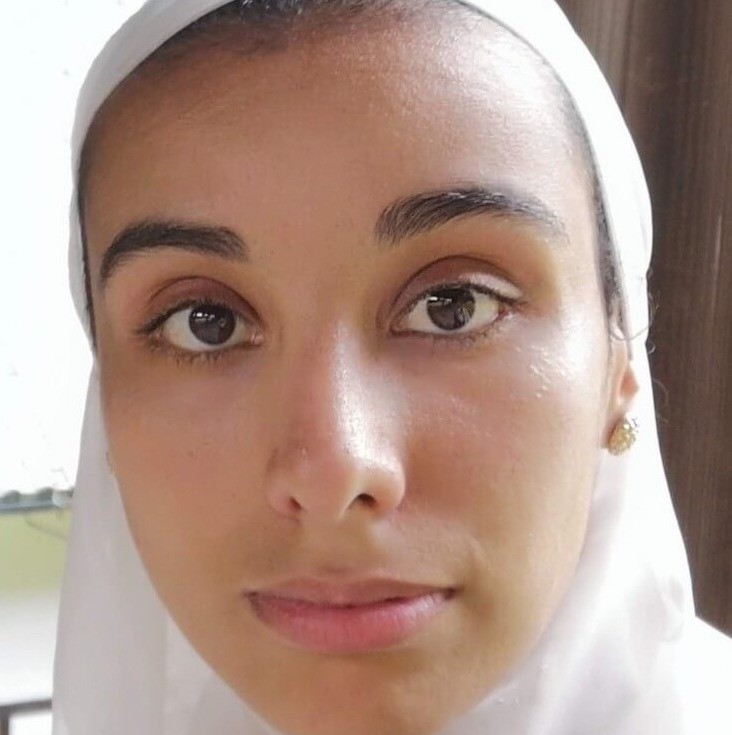What is your educational background?
I studied Chemical Engineering at the British University in Egypt. I also majored in Environmental Engineering during my undergraduate studies. I have an MSc in Renewable Energy also from the British University in Egypt. I am currently pursuing a PhD in Carbon Capture and Storage at the University of Edinburgh.
What is your current occupation?
I look at technological solutions to climate change in my PhD, especially Negative Emission Technologies (processes that remove carbon dioxide from the atmosphere). I am building and developing a Direct Air Capture absorber in the lab.
I am involved in public outreach and can be caught at any time talking about climate change and its solutions to anyone and everyone. I also tutor undergraduate engineering courses and am working on becoming a Fellow of the Higher Education Academy.
What or who got you into STEM?
I’ve always enjoyed the STEM subjects at school. I was always representing my school at science fairs, maths challenges, and design competitions and have a few awards to show for it. Growing up in Zambia, I was always aware of climate change and know first-hand its effects on people’s lives.
I wanted to study something that could help me counter climate change and/or plastic pollution through my love for science. Engineering felt like a natural choice. My parents and teachers have always been very supportive. In fact, my parents always stood up for me. They wouldn’t stand for any of the stereotypes of what a girl should/shouldn’t be.
What is the biggest challenge/barrier you have faced as an African in STEM?
I would say rudeness, some people are just plain mean. I can’t tell though if it is because I am African, Arab, Muslim, or a woman. There are plenty of untrue stereotypes that people have tried to apply to me and it always adds unnecessary effort to disprove the stereotype before proving myself as an engineer. I think we have an unfair starting point.
How do you think your background/upbringing has been beneficial in your journey/career?
My background made me who I am and it is the reason I am so passionate about working on climate change solutions. I have a deep appreciation and connection with Mother Nature. I believe that having a mixed cultural background has opened my mind to other people and made more accepting of others. I always try to understand where someone is coming from which is something that I find beneficial in the climate sphere. My parents deserve 100% of the credit.
How do you think we can start to change the narrative surrounding African contributions
to global STEM research & careers?
Visibility! African scholars who have a platform must use them. Also, allyship, mentorship and support. I think every generation has a responsibility towards the next generation. We have to be the role models and mentors that we didn’t have.
What advice would you like to give to young, aspiring Africans in STEM?
Your persistence is invaluable, know your worth [and talents and skills] and be stubborn with asserting it. Work on improving yourself always. Self-care is everything, you won’t be able to make the change you want to see in the world if you are broken.






